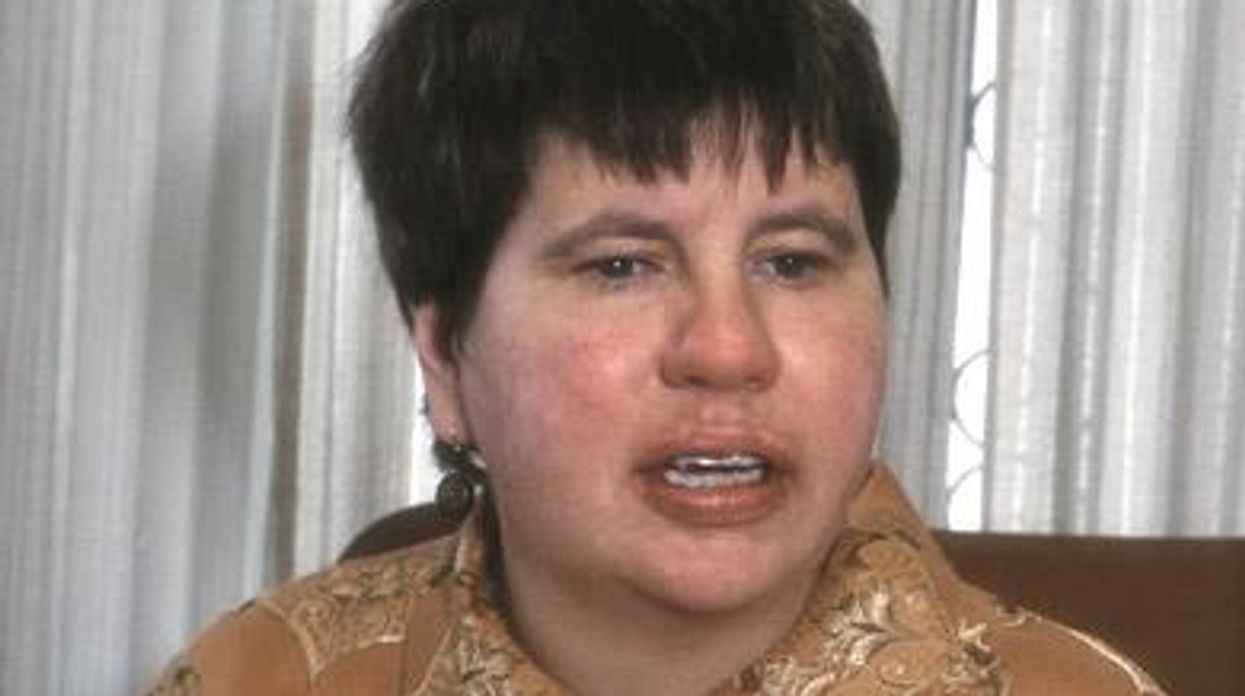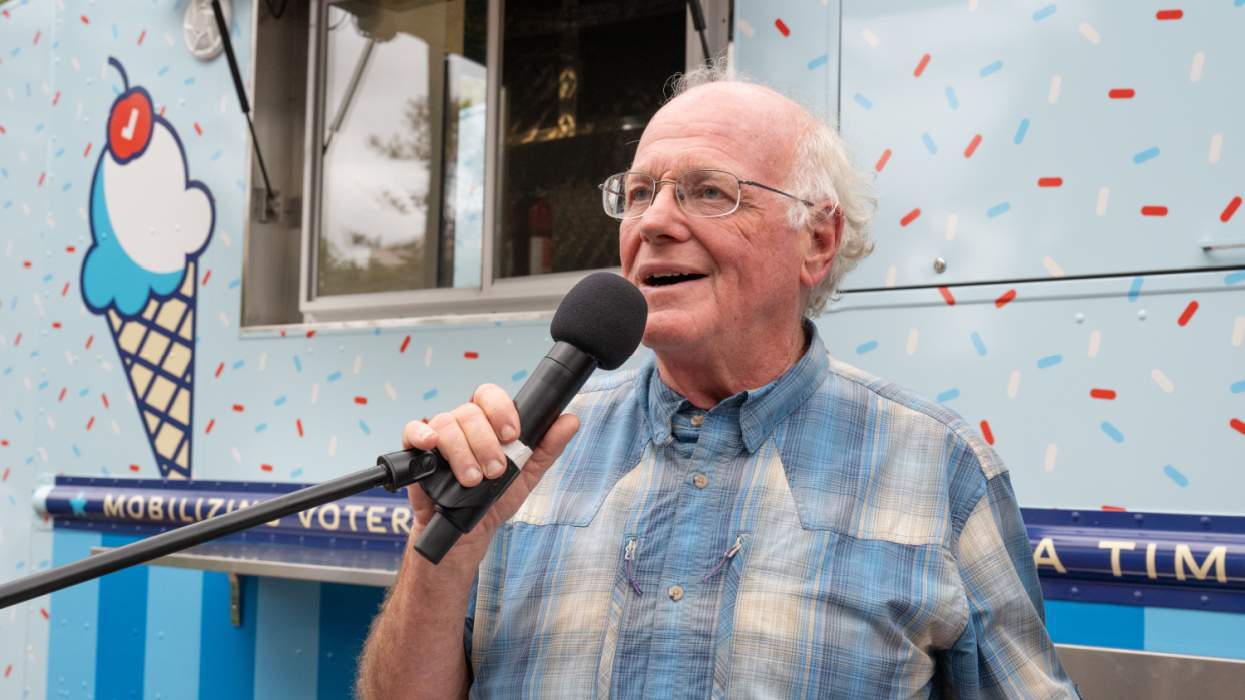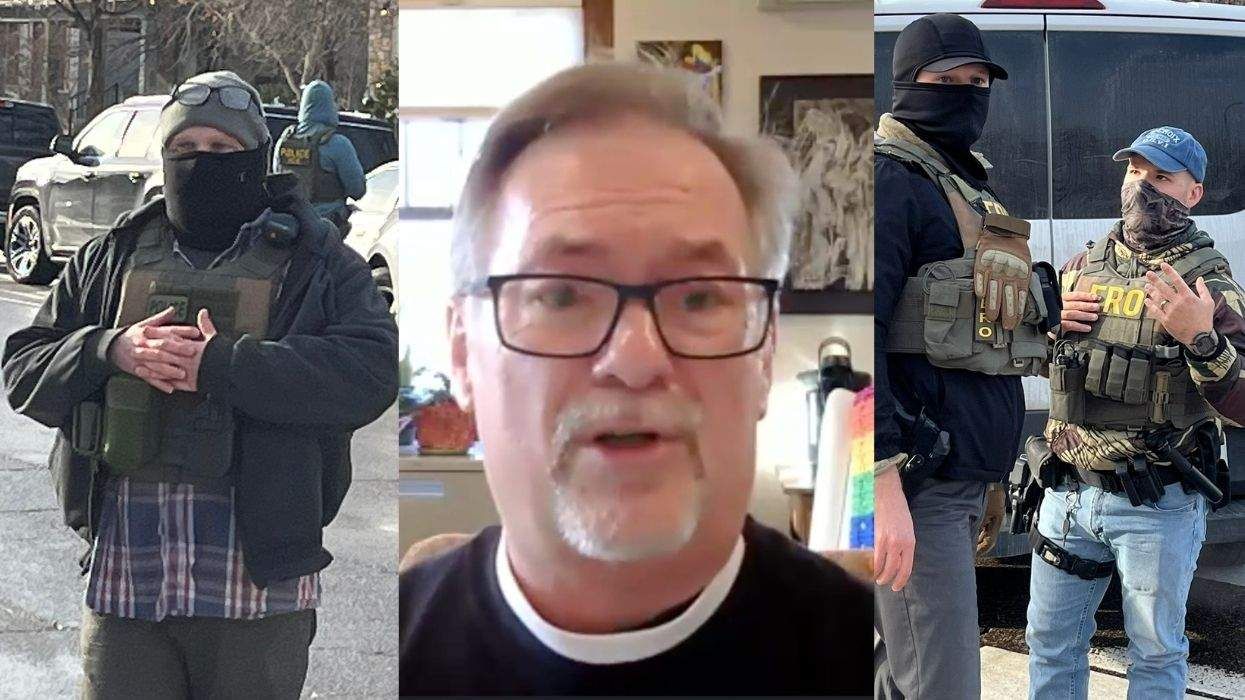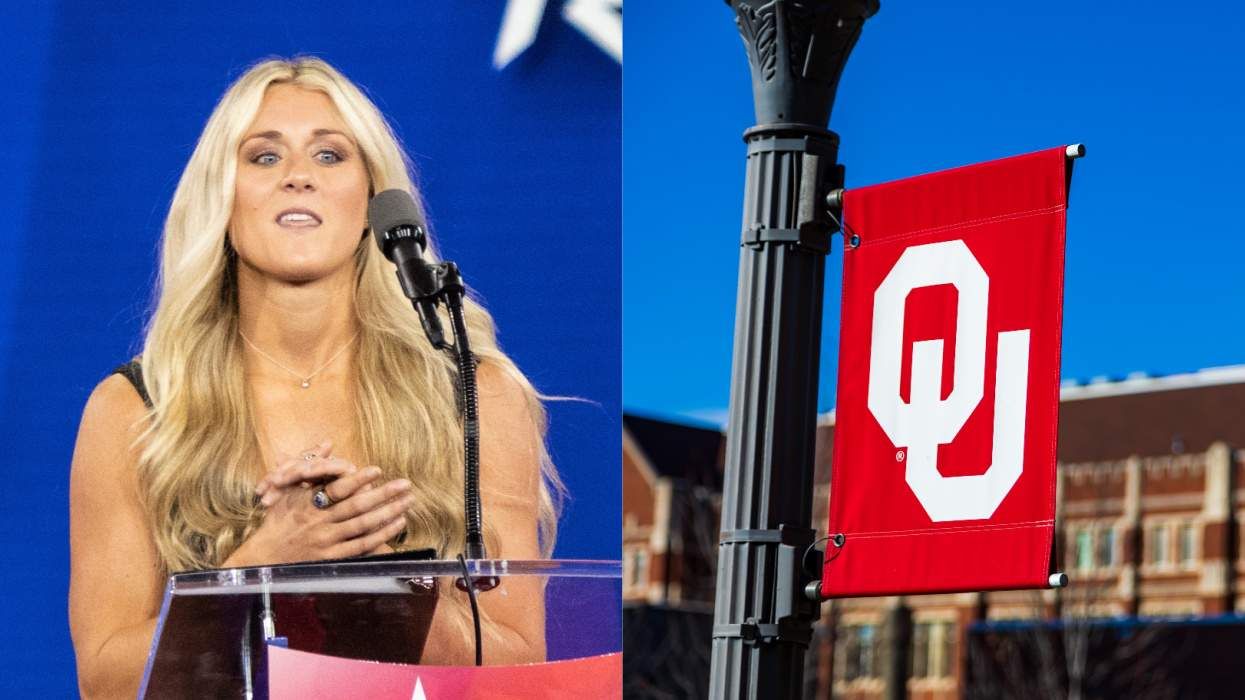Like a colonoscopy or head lice, the word Christian is a conversation killer among LGBTs. So I will admit up front that whatever it is you're thinking right now about Christians -- hypocritical, antigay, anti-sex, anti-women, anti-choice -- you've got plenty of evidence to back you up. Let's also say, while we're still here in the first paragraph, that whatever the church or its representatives did to you -- whatever abuse, whatever violation of trust, whatever was said to make you believe that you were not a child of God in your whole beautiful queer self, whatever the silence in which you did not hear how infinitely and immeasurably God loves you -- whatever drove you out of the church is simply inexcusable. But unless our community changes the "God vs. Gays" paradigm, we will never achieve full equality. Nor will it be possible for so many of us to live out our truths. My truth, strange as it may be, is a calling to ministry. It's also the truth of a lot of fierce and beautiful gay people I know, whose stories aren't told often enough.
The big question is this: How can we engage the larger LGBT community in this struggle, especially with all the pain and rejection caused by the church? That rejection is exactly what makes it so hard for me, and most LGBT people who call themselves Christian, to explain to others why we stay. Why should we stay where we are either simply not "wanted," or openly denounced. Most varieties of Christianity still practice religion-based discrimination against same-gender loving and gender-nonconforming people in one way, shape, or form. So why bother?
We do not stay because we're naive about the poor track record of the church on queer issues. The colossal cluelessness of the church is something that LGBTs in the church have to laugh about -- in that ironic, rueful, shake-your-head-in-disbelief kind of way. We have also cried about, drank over, and raged against the bias for the last several eons. That bumper sticker that says "Jesus, save me from your followers" is something we relate to all too well. But we don't leave our home. We stay to make needed repairs.
There are plenty of reasons why we stay, many of which are hard to describe in words. It can be a spiritual awakening that finds resonance in the Christian story, or an unyielding belief in what the church can, should, and perhaps will be. It can be that our hearts are so deeply connected to the people we share our faith with and we cannot leave that home. We all have our personal reasons and they are all valid.
But more important, I can tell you why it matters for the broader LGBTQ community -- the churched, the un-churched, and anti-church, as well as believers in other religious traditions -- to care about fighting faith-based discrimination in mainline Christian churches. As someone who has been a part of the grassroots struggle to fight discrimination for over 20 years in the Presbyterian Church, I have a few opinions in this regard.
First, there's the obvious. The Christian extremist right, which has increased its influence in mainline churches, must be countered. Many of the Christian denominations have a history of being moderate on many things and progressive on others. In the last three decades that moderate Christian voice has been drowned out, silenced, or taken over. The influence of the Christian right must be countered directly and from the inside. While the Christian right is regrouping, reviewing the payout of its last homophobic spending binge, and wearing that deer-in-the-headlights look, now is the time.
Last week, I sat all day observing the proceedings in a Presbyterian Church trial on whether I could be moved forward in the ordination process as an out lesbian. The decision that came down yesterday was a mixed bag (read the details at www.tamfs.org ), but the reality is that I am looking at a longer struggle that includes advocating for a change in church policy to include LGBT people, not just ongoing individual fights where candidates for ordination struggle in a system that blocks them at every turn.
Once again I saw little of the Jesus or church I know in the proceedings. No out queer voices were heard at that trial, including mine. Opponents of LGBT equality in the church are rightfully wary of the personal testimonies of queer people of faith, and likewise wary of conversation, dialogue, and any live-and-let-live compromise.
But here's the thing. God still shows up at these things. (You might be thinking that it was just caffeine, some other hormonal imbalance, or a perverse quirk, but let's just call it God for the moment.) It was a God that was patient but frustrated, loving but forceful, and alternately laughing and crying over what some followers do in God's name. There was a magnificent gaggle of young queers who turned out to observe the trial. Some of them were asked to leave on account of illegal twittering. So there they were, full of love, vibrancy, strength, and faith. I say that's the church. So sue me.
But back to this "God vs. Gays" thing. I know just yesterday you told someone you were "spiritual, not religious." But there are plenty of us in the queer community who identify as both spiritual and religious. It's going to take all of us to counteract the heterosexist agenda of those who appear to be religious and not the least bit spiritual.
Our primarily secular LGBT organizations are doing a much better job of including LGBT people of faith in their work these days. The Gay and Lesbian Alliance Against Defamation, The National Gay and Lesbian Task Force, The Human Rights Campaign, and others are making faith issues part of their program initiatives. There are several prominent LGBT people of faith who write and blog about their beliefs. They all understand that it is simply not enough to meet religious-based bigotry with secular argument. Not only is doing so ineffective, it contributes to the lie that LGBT people are not people of faith and that all religions and religious leaders view LGBT people from the same perspective.
As the Prop. 8 loss in California and President Obama's selection of Rick Warren to deliver the inaugural invocation have recently shown us, it is still critical to our community to take seriously the intersection of LGBT rights and issues of faith and religion.
But it will take all of us. Taking a page from Sarah Silverman, if you grew up in a faith tradition, go back to your family, your church, synagogue, or mosque and talk about these issues. Challenge them on what they are doing to make the church more inclusive. Let them know, and know for yourself, that Scripture and theology do not teach homophobia, transphobia, intolerance, or bigotry. Remember the young people who are sitting there hearing the messages of exclusion and judgment that drove you out the door. Our movement needs political, economic, and spiritual strength.
My wish -- OK, since I've come out this far, I'll say "my prayer" -- is that all who seek spiritual strength in the Christian church will find it, no matter their sexual orientation or gender identity. That all may freely worship. That all may freely serve. That is my prayer.
So, amen anyway.















